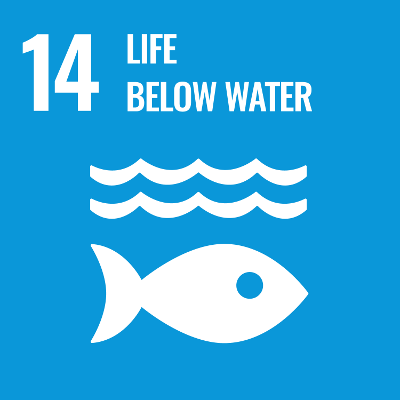Targets of this goal

By 2030, it is necessary to achieve the following targets:
- Prevent and significantly reduce ocean contamination
- Sustainably manage marine and coastal ecosystems. Addressing the effects of ocean acidification
- Ban fishery subsidies that contribute to overfishing
- Facilitate artisanal fishermen's access to marine resources and markets
- Increase the benefits of sustainable fisheries for small island states
We can currently advance towards the attainment of this goal:
How does technology contribute to this SDG? See what we propose and tell us what you thinkLessons Learnt
We have analyzed the literature and extracted the following ideas on how technologies are favouring this SDG.
See also what we propose and tell us what you think
L.1
The literature offers a considerable number of references evidencing the role of AI for the mitigation of marine pollution, including applications such as the detection of oil spills from satellite data, detection, quantification and positioning of plastic debris through drones, or prediction concentration of E-coli bacteria in coastal areas
L.2
Initiatives are being proposed on an international scale for ocean monitoring. These monitoring systems have great potential for “smart fishing” (species classification, behavior prediction, biomass estimation, etc.), or the smart management of ocean ecosystems. Currently its applicability is limited due to the high cost of these systems
Recommendations
The proposed actions on which we introduce an opinion poll for this SDG, are described below:
Poll for SDG-14
The analyses of interrelationships between emerging technologies & AI, and the possibilities they offer to pursue the SDGs, led us to propose a series of actions and/or potential projects to develop.
Among these recommendations, which one is more important in your opinion?
R14.2 - Low-cost, highly reliable ocean monitoring technologies
R14.3 - Blockchain technology for the secure management of information systems and management of oceanic ecosystems
Other recommendations:
![]()
